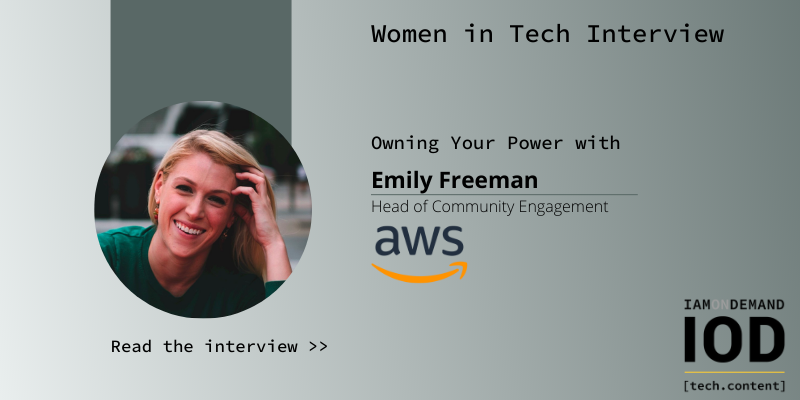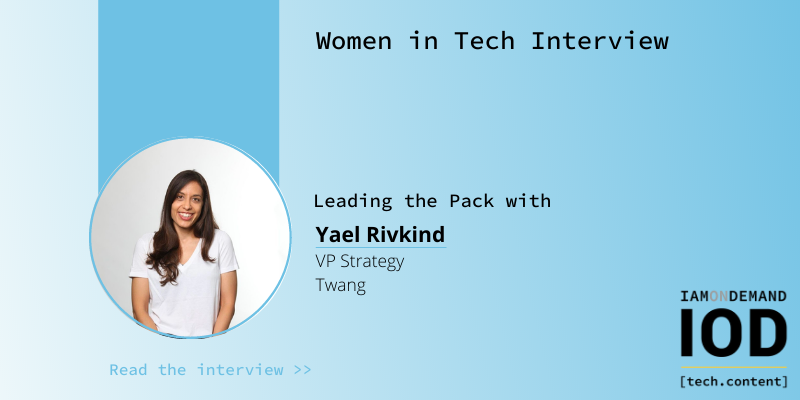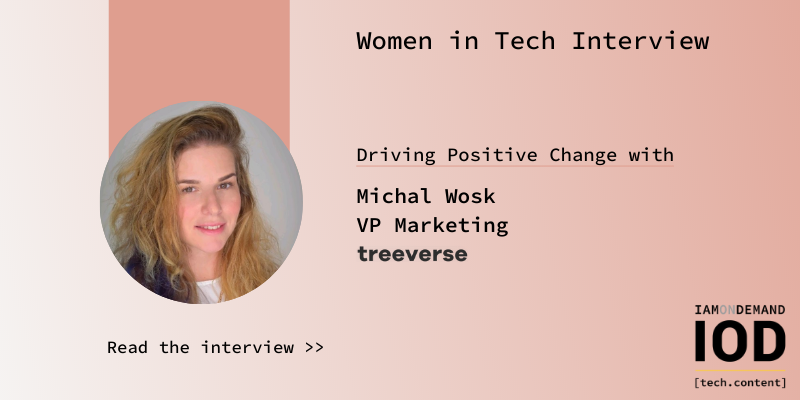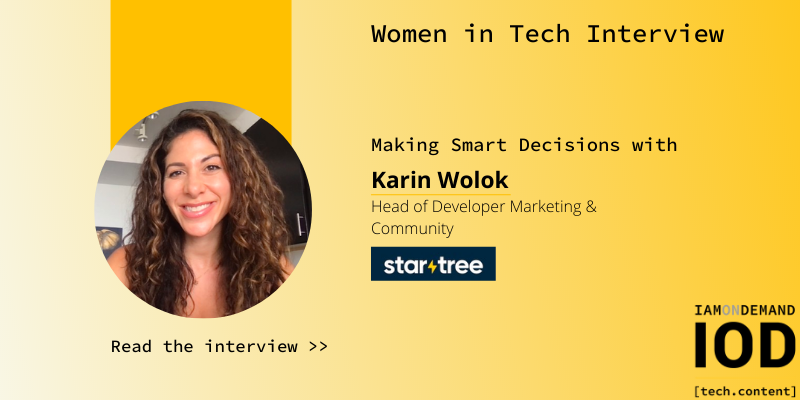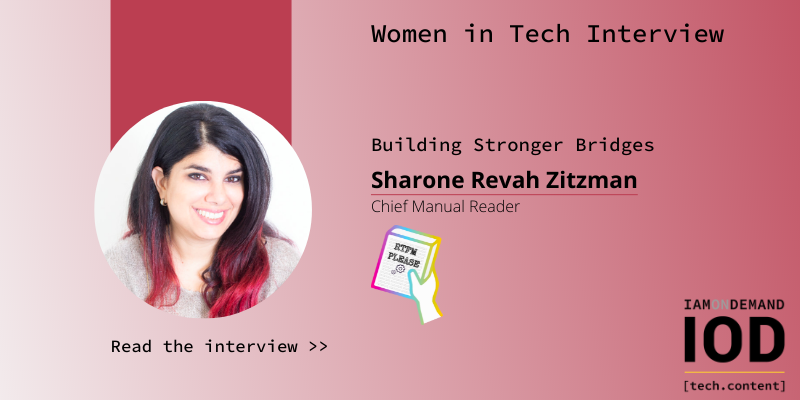Welcome back! We hope you’re loving this series of profiles of female tech leaders as much as we are. The idea was inspired by International Women’s Day on March 8th, but, as you can see, we couldn’t stop there—there are far too many women doing great things in the tech world!
Our last post featured Sharone Revah Zitzman, Chief Manual Reader at RTFM Please. Sharone founded her own marketing company because she refused to be pigeonholed into a single limited role and didn’t want anybody holding her back.
Today, we’re profiling a woman who’s made a career out of transforming tech giants from within—first at Microsoft, and now at AWS. Like Sharone, Emily Freeman, Head of Community Engagement for AWS, has a degree in political science. As she’ll tell you herself, she wasn’t a born coder, but decided to follow her dreams and shift careers in 2015. It was a scary choice, but absolutely the right one, as she’s now using her bold approach in the workplace to speak up for underrepresented people of every kind.
AWS QUICK STATS
Founded: 2002
HQ: Seattle, WA
Site: https://aws.amazon.com/devops/
Women in Tech Interviews: Part I & II
What is a less-known fact about your backstory and how did it help shape your career path going forward?
That I went to code school in 2015. I don’t have a CS degree. I haven’t been coding since I was 14. I was a political science nerd, fundraiser, and ghostwriter way before I was a developer. When I chose to shift careers, I thought that my previous experience had been a waste. And that I was throwing away a decade or more of work. But I wasn’t! My previous experience informs who I am today and how I operate in my current role. Whether you’ve been in tech for decades or months, you have a unique perspective and point of view that benefits the industry. Share it!
Which aspects of your job do you like most?
I love having an impact on other people’s lives. Whether it’s bringing someone a moment of joy by making them laugh or creating a product or methodology that enables them to better perform (or just better enjoy!) their job, I’m happy. I genuinely care about developers and developer communities, and I feel incredibly lucky that I have the opportunity to learn from and highlight the work of some incredible humans in tech.
How would you define and quantify success for women in tech in 10 years?
The eradication of “women in tech” lists. And that’s not to denigrate the value of them in this moment. It’s important to highlight underrepresented folks in tech; it builds awareness. But I’m tired of being a “woman in tech.” I want to be a “person in tech.” Women don’t need days of recognition or disingenuous narratives or coaching on how to eradicate their imposter syndrome. Women need sponsors to say their names in the rooms they haven’t been invited into. Women need managers to believe in them, give them increased scope, provide the resources for them to succeed, and then give them the appropriate credit—including promotions, bonuses, and raises.
Final question: To summarize, can you offer one tip for women aspiring to work in leading positions in tech?
Don’t say no to yourself. I think, too often, women and other historically marginalized groups will say no to themselves before they ever give someone else the opportunity to say no. And I wonder how many of those answers would have been yes. We’re not socialized to push boundaries, to break rules. But the only fast way to the top is to take risks. And that includes making people uncomfortable, hearing no, being told you’re too much, too aggressive, too junior, too whatever. Keep pushing. Be bold. There’s a quote I love: “Stop breaking yourself down into bite-sized pieces. Stay whole and let them choke.” You’re a badass. Own that and step into your power.
Women in Tech Interviews: Part III & IV
Summary
The five extraordinary women we interviewed for this series are paving the way for other women in tech leadership roles. If there’s one common theme we heard in our conversations, it’s the goal that one day—not too far in the future—interviews like these will be a thing of the past. We won’t have to focus specifically on female tech leaders because they will be everywhere we look, at the head of too many companies and departments to count.
And, of course, as Emily just mentioned, we sincerely hope that the commitment to equality and inclusion in tech will embrace not only women, but every other group that has traditionally struggled for representation in our field. Leading tech companies know that diversity can make them better and more competitive—and that making space for a range of backgrounds and experiences guarantees a creative and energetic edge—no matter what the industry.
